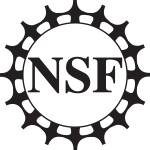
California Alliance About Page
Creating pathways to faculty and research careers in math, physical sciences, computer science, and engineering
The California Alliance is a partnership between four leading California universities— University of California Berkeley, California Institute of Technology, Stanford, and the University of California Los Angeles—to ensure that underrepresented minority (URM) PhD graduate students and postdoctoral scholars from our alliance institutions aspire to and populate the ranks of the postdoctoral population, the faculty at competitive research and teaching institutions, the federally funded national laboratories, and scientific think tanks.
The California Alliance is a partnership between four leading California universities— University of California Berkeley, California Institute of Technology, Stanford, and the University of California Los Angeles—to ensure that underrepresented minority (URM) PhD graduate students and postdoctoral scholars from our alliance institutions aspire to and populate the ranks of the postdoctoral population, the faculty at competitive research and teaching institutions, the federally funded national laboratories, and scientific think tanks.
Initially funded by a $2.2 million grant from the National Science Foundation, the California Alliance focuses on increasing diversity in Mathematics, Physical Sciences, Computer Science, Engineering (MPCSE) and related disciplines to ensure that underrepresented minority (URM) PhDs from alliance institutions, in much larger numbers, aspire to and populate the ranks of the postdoctoral population, the faculty at competitive research and teaching institutions, the federally funded national laboratories, and scientific think tanks. The California Alliance focuses on increasing diversity in the academic fields with the greatest URMs: the mathematical, physical, and computer sciences; and engineering (MPCS&E). The goal of the California AGEP is to significantly increase the movement of URM students into the most competitive research and teaching careers in the MPCS&E fields to systematically address ethnic underrepresentation in the particular STEM fields and at the institutions where it is most severe and remains seemingly intractable nationally.
In 2016, the National Science Foundation awarded a new grant of ~$2M to the California Alliance to refine, implement, study, sustain, disseminate and begin expanding, reproducing and replicating the multi-dimensional California AGEP Alliance model at the national level. The California AGEP Alliance II will refine the community-of-practice, research exchange, mentoring and professional development components of the model while significantly increasing the dissemination of state-of-the art knowledge about equitable and inclusive educational and mentoring practices to faculty who work with graduate students and postdoctoral fellows. The integrated research will continue investigating the intersections of identity, structure and belonging, including goals 1) to firmly establish the role of a structured graduate program as a core explanatory variables that accounts for significant disparities among student groups in research participation; 2) to examine the simultaneous role of belonging, alongside structure, as two axes along which to map the “psychological space” of STEM departments, and to examine the interplay of structure and belonging; and 3) to zero in on the ways in which students’ stigmatized identities may be particularly sensitive to structure and belonging. Ethnographic and quantitative research methods will be used to address the research questions under investigation. The AAAS Trellis program will provide an online platform for the partnering institutions’ collaboration efforts, for disseminating model information to a national STEM community, and for linking participants in the alliance with public and private organizations.
A key component of the California Alliance II program is the development of a national Research Exchange that will include the top ten peer universities in the MPS & Engineering fields.. Students and postdoctoral scholars who participate in the Research Exchange will have access to research and mentoring opportunities at all ten universities, networking events, mentors, training materials, job announcements, an online community, and other initiatives that will increase their access to MPCSE careers in higher education and research. The participating universities currently include: (list in alphabetical order).
The California Alliance was honored to host the first national research conference for the Alliances for Graduate Education and the Professoriate (AGEP). This conference convening brought together researchers who have been funded by AGEP to share their research results and ongoing studies to better inform continued investigations in the field and better inform continuing research funded by the program. The goals of the conference include:(1) Advance knowledge with presentations of research findings, relevant to the AGEP program’s goal (to increase the number of URM faculty in STEM disciplines and STEM education research fields by advancing knowledge about pathway models to career success); (2) Provide professional development for the AGEP Principal Investigators (PIs) and a select group of advanced graduate students and postdoctoral fellows who are conducting social science or educational research relevant to advancing knowledge about the barriers and opportunities for URMs in the STEM academe; (3) Disseminate the results of the conference with the production and publication of a conference proceeding volume. The conference was supported by a grant from the NSF for ~$436K.
Funding Sources: NSF 1306595, 1306683, 1306747,1306760, 1647273, 1742065
Principal Investigators: Frances Hellman& Rodolfo Mendoza-Denton, UC Berkeley; Doug Rees, Caltech; Page Chamberlain, Stanford; Robin Garrell, UCLA.

This part of the California Alliance.org web archive.
This material is based upon work supported by the National Science Foundation under Grants: 1647273, 1742065, 1306595, 1306683, 1306747, 1306760. Any opinions, findings, and conclusions or recommendations expressed in this material are those of the author(s) and do not necessarily reflect the views of the National Science Foundation.






